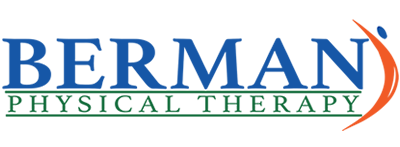(1:13) Jake has gotten more calls about shoulder/rotator cuff issues over the past 18 months than ever before
(1:59) We are going to go over signs & symptoms of rotator cuff problems compared to an impingement, causes of shoulder dysfunction, whether you should get an MRI or X-Ray, how to interpret your MRI, do you need surgery or injections, if rest & ice help & can you heal a rotator cuff tear WITHOUT surgery and much more including tips to help!
(3:30) The reason for rise in shoulder issues is due to what is going on in the world, our lives have changed dramatically
(4:16) Signs & symptoms of a rotator cuff problem vs. impingement problem (two most common issues) & how we know the difference.
(5:20) Biggest sign of rotator cuff injury is night pain. Impingement syndrome is going to cause a sharp pinch when you try to raise your arm up when it gets to shoulder height
(7:08) Number one cause of shoulder pain is POOR POSTURE
(8:18) There are 18 muscles attached to your shoulder blade, when you are in poor posture these muscles are not as efficient
(9:01) Should you get an X-Ray or MRI? X-Rays look at bones, not soft tissues
(10:05) Getting an X-Ray will NOT give you clear information on what is causing your pain
(10:30) Jake’s story about what a surgeon told him years ago regarding MRIs
(11:16) Pre-MRI all you know is your shoulder hurts, you don’t have a medical diagnosis. When you get an MRI, you start attributing your pain to that and may have a victim mentality
(12:47) If you don’t want surgery, don’t get an MRI
(13:21) 99% of the time we can tell you if you need surgery within the first 5 minutes
(13:29) How to interpret an MRI
(14:48) When interpreting an MRI, Jake looks for Mild, Moderate or Severe
(15:30) Severe is the only one Jake knows you will need surgery
(16:25) Do you need surgery if your MRI shows a tear?
(17:20) If you have a moderate tear, go to physical therapy and not a cookie cutter one!(18:52) When we are doing shoulder exercises during rehab they should NOT hurt
(20:08) The first test Jake does to tell you if you need surgery within 5 MINUTES. It is called the shoulder shrug test.
(21:01) A positive shoulder shrug drive is indicative that you may need surgery.
(22:09) Should you get an injection? This question drives Jake NUTS!
(22:38) The injection WILL take the pain away but only temporarily and it will lead to further degradation of the shoulder. Just because the pain is gone doesn’t mean the shoulder is fixed.
(23:27) 90% of the people Jake has come across that have gotten an injection, ended up getting surgery.
(24:04) The only place Jake encourages getting an injection is for hip bursitis.
(24:52) Will ice or rest help?
(25:31) Can you heal a rotator cuff tear w/o surgery?
(26:06) How long does it take to rehab conservatively vs post op? (About same amount of time).
(27:24) Biggest difference between rehab conservatively vs post op is amount PAIN you go through.
(27:57) It is absolute hell for at least a week after rotator cuff surgery and it is tough to sleep.
(29:16) Simple actionable tips that you can do to improve your rotator cuff/shoulder pain.
(31:29) Don’t work through pain with your shoulder, it will NOT get better!
Join us on social media –
Facebook: @bermanwellness, @physicaltherapynaples
Instagram: @berman_wellness, @bermanphysicaltherapy
Email us –
Check out the new book, The Berman Method of Golf Performance – www.bermanpt.com/book


